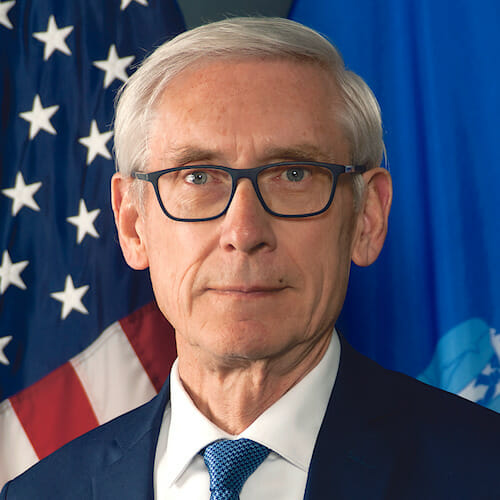

An additional $6 million investment will expand the WisCaregiver Careers workforce development program to address the shortage of certified nursing assistants in the state’s nursing homes, Wisconsin Gov. Tony Evers (D) and the state’s Department of Health Services announced Wednesday.
“With an aging population, Wisconsin has been facing a healthcare workforce shortage for years — a challenge the COVID-19 pandemic only further underscored — and this funding will support a real solution to the state’s healthcare staffing needs that will benefit our entire state well beyond this pandemic,” the governor stated.
The program is a public-private collaboration between DHS and advocacy groups, the Wisconsin Health Care Association and LeadingAge Wisconsin.
“We’re pleased with the effort. We’re pleased with the investment by the Department of Health Services to utilize some of the federal funding that was made available, and it’s going to be put to good use,” John Sauer, president and CEO of LeadingAge Wisconsin, told the McKnight’s Business Daily.
The $6 million investment, funded through the Centers for Disease Control and Prevention Nursing Home & Long-term Care Facility Strike Team program, will expand the current program, including recruiting qualified employers to host as many as 3,000 new CNA training slots. Funds will support employee recruitment and success through retention bonuses, employer reimbursement and success bonuses, and mentorships.
“It’s building upon a successful program we’ve operated here in Wisconsin,” Sauer said.
Kate Battiato, director of workforce development at the Wisconsin Health Care Association, told the McKnight’s Business Daily that she has been administering the WisCaregiver Careers program since 2020, once DHS formed the partnership with WHCA and LeadingAge WI. Back in 2018, DHS staff launched the program independently of WHCA and LeadingAge as a successful pilot program. It was revamped during the pandemic, thanks to a $400,000 workforce grant from the state, and already has exceeded its goal of training 500 new CNAs for employment by the end of June.
The program has trained 547 CNAs so far, Battiato said.
“[The governor] is investing in a program that’s been shown to work,” she added. The government has been very good at partnering with us, and we’re sort of the intermediary between the government sector and the private sector. You’ve got all the sectors participating and working together, which is, I think, one of the things that makes the program special.”
This iteration of the WisCaregiver Careers program, in addition to opening up an additional 3,000 CNA training slots statewide, will pay for certification testing and add a mentorship component. After six months of working in a nursing home, each new CNA and his or her mentor will receive a $500 bonus.
“We’re doing that to acknowledge and reward the work of our existing CNA workforce,” Battiato said.
WisCaregiver Careers also is working to build a relationship with the Wisconsin National Guard, she said, in an effort to encourage service members to consider careers in healthcare in a civilian capacity once their service ends.
“We think it’s a pretty significant package. We’re proud to do this partnership with the Wisconsin Health Care Association and with the Department of Health Services,” Sauer said. “It’s been a good partnership that we have formed, all with the idea of trying to attract more individuals to choose a career in long-term care. I think it will definitely pay dividends.”


